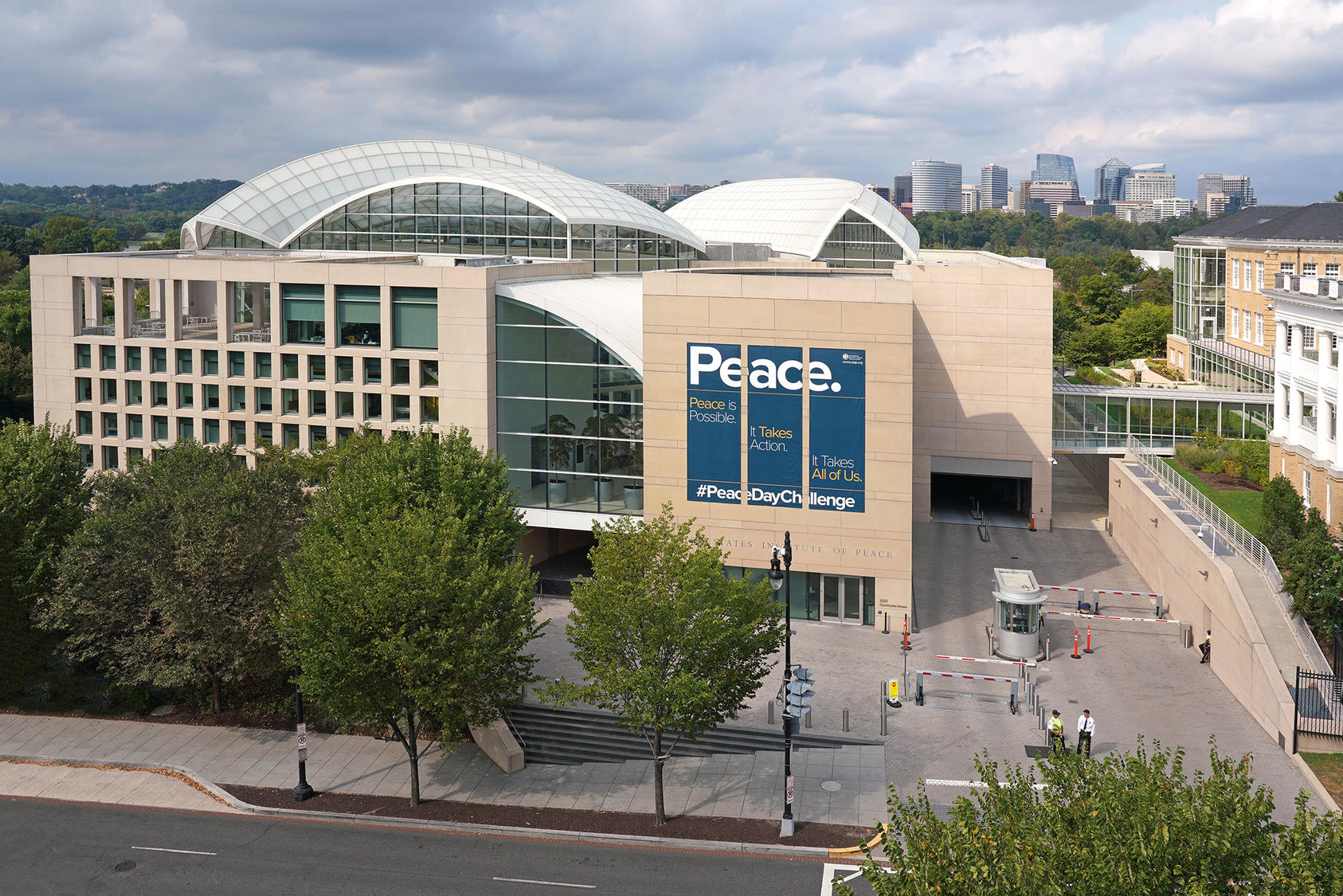Peace Day Expo
Observe the International Day of Peace with a visit to the headquarters of the United States Institute of Peace! Located at the northwest corner of the National Mall in Washington, D.C., USIP’s headquarters serves as a destination for the American public to learn about peacebuilding approaches and as a symbol of the United States’ commitment to global peace.

Each year, USIP asks people to advocate for peace as a real alternative to violent conflict by taking the Peace Day Challenge on September 21, the International Day of Peace. This year, USIP challenged you to explore your own understanding of peace and conflict, take action for peace and connect with a global network of peacebuilders using #PeaceDayChallenge.
On Thursday, September 21, 2023, USIP held a Peace Day Expo to share its wide-ranging work. Visitors to its headquarters had the opportunity to speak with Institute experts and learn more about how conflict can be prevented, managed and resolved.




